Pompeii was a city built more than 2000 years ago which got covered in ash from when the Vesuvius erupted. The people died intoxicated by fumes coming from the eruption.
"To us at distance it was not clear which mountain was belching out the cloud, but it was later discovered to be Vesuvius. In form and shape the column of smoke was like a tremendous pine tree, for at the top of it's great height it branched out into several skeins. I assume that a sudden burst of wind had carried it upwards and then dropped, leaving it motionless, and that it's weight then spread it outward. It was sometimes white, sometimes heavy and mottled, as it would be if it had lifted amounts of earth and ashes."
Before the eruption there was an earthquake which cracked the walls in the city. Then there was an eruption. The people tried to flee but got fumes in there lungs which killed them. One plaster figure is of a person lying down as if calling for help.
In 79bc The volcano erupted and spat out ash which got deposited on Pompeii and Herculaneum with 7 meters so the towns were buried. The people that lived there got warm moist ash which hardened around the bodies and so it made perfect casts for plaster copies of the people.
The city was rediscovered by a farmer on his field by chance in 1879. The farmer dug up a pipe, so he continued digging, until he found a street - and Pompeii came to light again.
People have been excavating since then and have found casts of the people that were there at the time of the explosion of Mt. Vesuvius. In one of my pictures there is a cast of a person that is calling to someone or is looking at something when they were swallowing the gases from the eruption.
I have now visited it three times.
I would also like to bring to your attention something I found out while I was watching the discovery channel on Time Travelers speaking about Pompeii. It mentioned that the wells in Pompeii had dried up before the eruption and that it may have shown some of the Romans that something was happening.
There is some form of evidence although I am not sure about the reliability saying that the people are believed to have lived a long life, maybe as long as in today's western World.
The eruption may also have taken several hours to engulf the city because the roofs were covered in silt at which time the people ran out of the houses into the streets and upon getting out onto the streets they encountered the gases which burned their lungs, chocking because of the ashes as well as suffering from thermal shock which was believed to be at least two hundred degrees Celsius..
A moment after Pliny the Elder died of asphyxiation during the eruption Pompeii was hit by a blast leading to the present situation of excavations.
Finally in 1982 close to Herculaneum many skeletons were found on the beach south of the city suggesting that they had had enough time to get out of the city, for which reason I am not sure but I would suspect leaving by ship but finding nothing therefore being condemned to die.
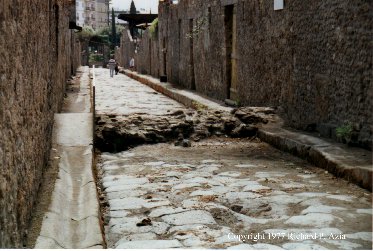 | 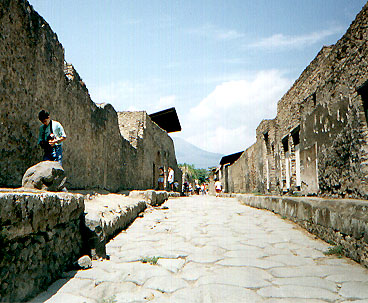 |
 | 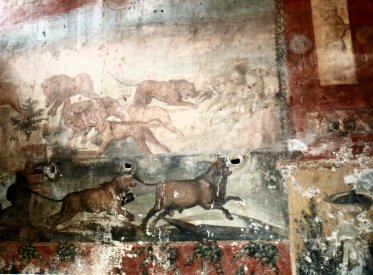 |
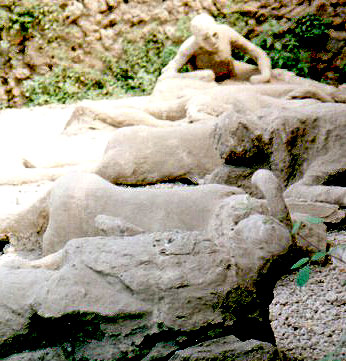 | 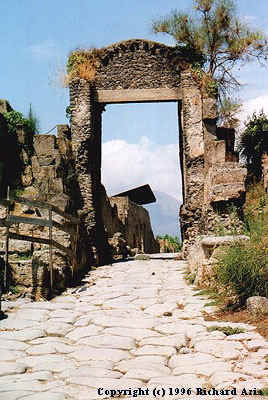 |
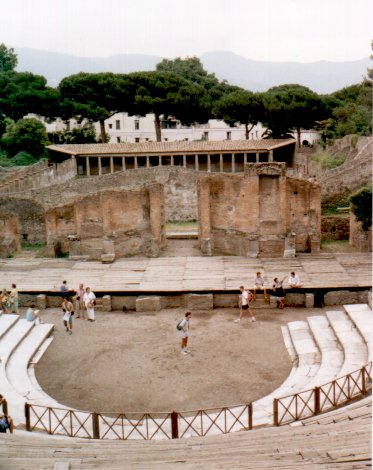 | 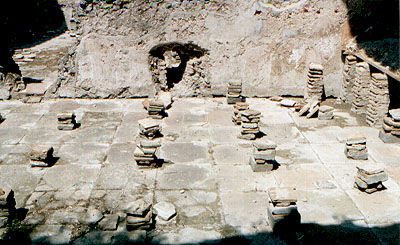 |
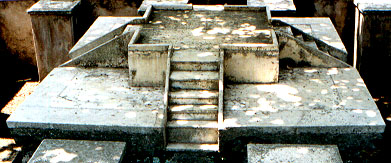 |  |
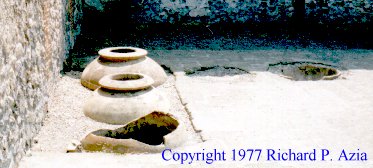 | 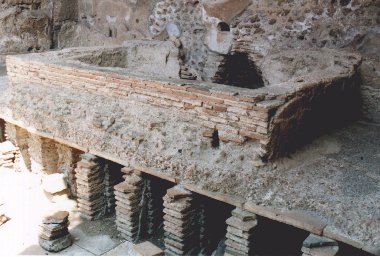 |
 | 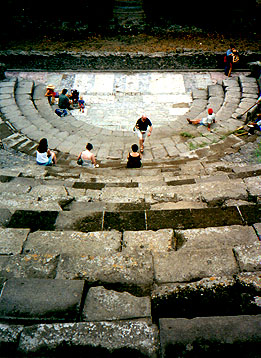 |
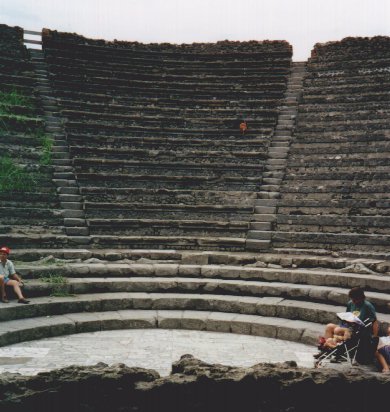 | 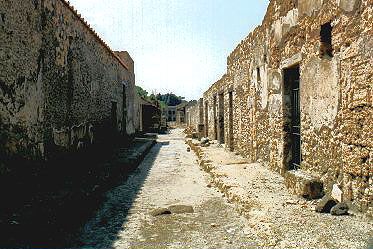 |
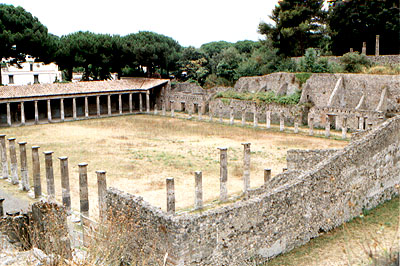 |  |
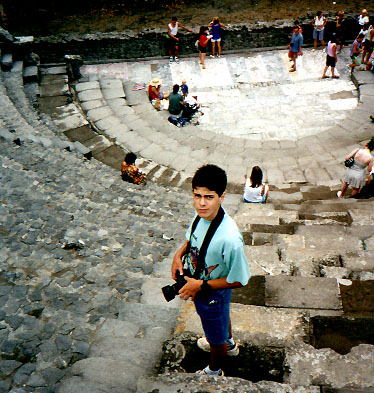 | 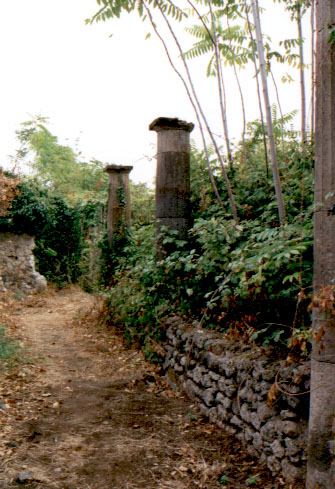 |
 |  |
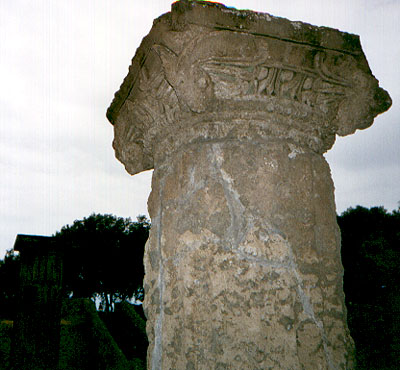 | 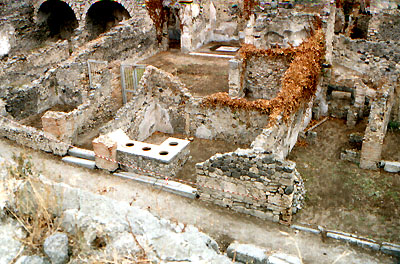 |
 |  |
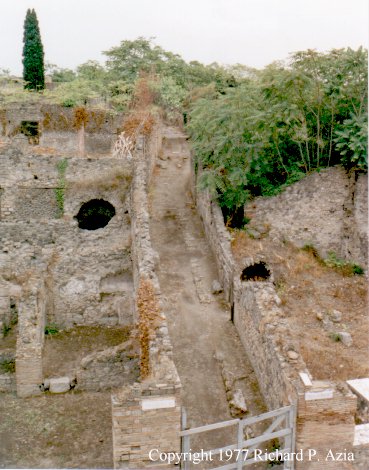 | 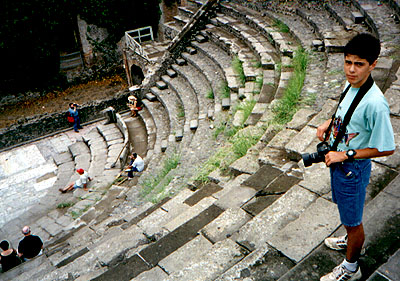 |
